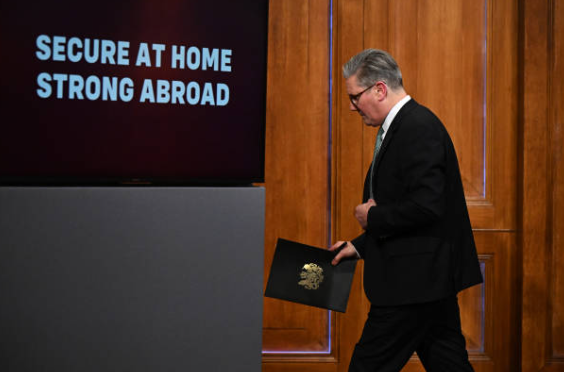The Prime Ministers announcement this last week to limit the UK’s foreign aid budget from 0.5% of its GDP to 0.3% there has been the view in Parliament that whilst the decision was ‘regretful’, there is a feeling of necessity surrounding the cut, if Britain is going to increase its power projection capabilities to aggressors in Europe, and allies in NATO. But it remains important for us to assess the strategical ramifications this may have the UK’s long term foreign policy objectives following the cut.
For decades the UK has led the way in its ability to fund humanitarian aid in economically challenged areas overseas. As one of the largest economic contributors to organisations such as the World Health Organisation, Britain not only funds world leading research that benefits the country directly, but by contributing to the prosperity of developing countries around the world, Britain opens new opportunities for trade, investment and opening new markets that further benefit the British Public.
When the United Kingdom offers aid to developing countries, it does so with a similar outlook as someone looking make a long-term investment. Supporting the stability of a country with humanitarian resources, such as food and medicine, whilst contributing to its economic prosperity through economic funding, benefits the UK. By investing in the prosperity of vulnerable regions, Britain reduces the risk of losing billions in assets overseas, as being forced into costly conflicts that diminish the country’s resources. Britain spent over a decade fighting conflicts in the Middle East at the turn of the century, costing billions to the taxpayer and sacrificing thousands of service men and women, yet today we have a Middle East that is more divided and impoverished then before western forces entered two decades ago. Fostering growth through external investment has proven to be a far more sustainable method of encouraging global prosperity, as organisations such as the WHO and UNICEF prove each and every year.
The decision to increase the U.K’s military budget to 2.5% of GDP by 2027 is in itself not a bad policy change. Britain’s armed forces are littered with issues that affect its overseas operational capabilities that are needed to reinforce the country’s interests abroad. Chief among them is the significant reductions in personnel, as Britain’s standing army is reportedly just over 70,000 men and women, far smaller than its cold war figures that numbered over 150,000 by the end of 1980s. If there is one constant in the changing nature of military strategy, it’s that boots on the ground is one of the most effective methods of deterrence, and with American security guarantees in Europe no longer guaranteed, this deterrence is looking less and less affective. Britain must play its part in securing global peace, something that can only be done with increased investment to protect both itself and its interests abroad.
Yet there has to be recognition that with the loss of a large portion of the UK’s aid budget can have detrimental effects to the future stability of vulnerable regions that could breed new problems for the UK. Humanitarian efforts in poverty-ridden areas like these can decrease the influence of terrorist groups, so the reduction in an overseas aid presence could pose a long-term challenge which may force prolonged UK involvement, at further cost to the taxpayer. Development diplomacy and soft power complement military action by playing a major role in strengthening both economic and political stability around the globe. Therefore, these approaches should be equally funded and respected and is why returning the foreign aid budget to the global standard of 0.7% of GDP should be in the national interest if Britain wants to continue to maintain its reputation as a force for good in an increasingly tumultuous world.





